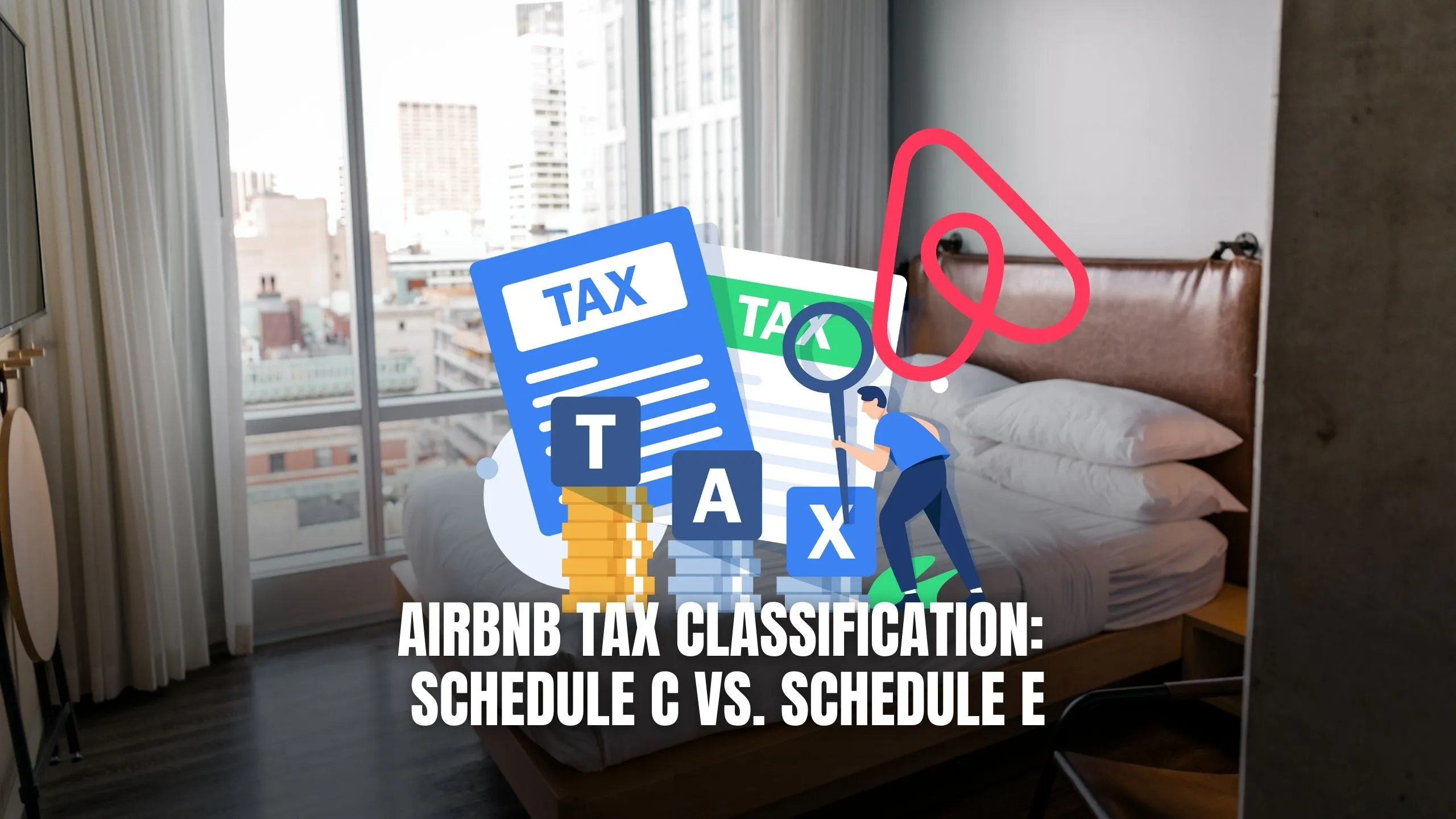Airbnb Tax Classification: Schedule C vs. Schedule E
- Expense Management Software Credit Cards Investing Business Solutions


Airbnb Tax Classification: Schedule C vs. Schedule E
When it comes to Airbnb income tax classification, understanding whether it falls under Schedule C or Schedule E is crucial for hosts. Both schedules have distinct implications on tax reporting and deductions. Let’s delve into the differences between Schedule C and Schedule E for Airbnb hosts to ensure compliance and optimize tax benefits.
1. Schedule C: Sole Proprietorship
Schedule C is used for reporting income and expenses from a sole proprietorship, including Airbnb rental activities if the host is actively involved in managing the rental property. For instance, if you handle guest communication, manage bookings, and oversee property maintenance for your Airbnb rental, you would likely classify your income under Schedule C.
2. Schedule E: Rental Income
On the other hand, if you rent out a property on Airbnb but are not actively involved in its management, your Airbnb income is considered rental income, and you should use Schedule E for tax reporting. For example, if you hire a property manager or use a rental management service to handle all aspects of your Airbnb property, your income would fall under Schedule E.
3. Tax Implications
The classification of your Airbnb income under Schedule C or Schedule E has significant tax implications. Under Schedule C, you may be eligible to deduct various expenses related to your Airbnb rental business, such as advertising, cleaning fees, maintenance costs, and mortgage interest. These deductions can help lower your taxable income and reduce your overall tax liability.
Under Schedule E, you can still deduct allowable expenses related to your Airbnb rental property, such as mortgage interest, property taxes, utilities, and depreciation. However, these deductions are subject to certain limitations, and you don’t have to pay self-employment taxes on rental income reported on Schedule E. This can result in different tax obligations and benefits compared to Schedule C.
4. Record Keeping and Documentation
Regardless of whether you use Schedule C or Schedule E, maintaining accurate records and documentation of your Airbnb income and expenses is crucial for tax compliance. Keep detailed records of rental income, expenses, receipts, and any correspondence related to your Airbnb rental activities to support your tax filings. This documentation will be invaluable in the event of an audit or if you need to substantiate your deductions.
5. Seek Professional Advice
Given the complexities of tax laws and regulations, it’s advisable for Airbnb hosts to seek professional tax advice from a qualified accountant or tax advisor. They can provide personalized guidance based on your specific situation and help you navigate the tax implications of your Airbnb rental activities effectively. A tax professional can also assist you in maximizing deductions, minimizing tax liabilities, and ensuring compliance with IRS regulations.
Relevant SaaS Products:
- QuickBooks: Simplify your accounting and bookkeeping tasks with QuickBooks, making it easier to track income and expenses for your Airbnb rental business.
- TurboTax: Ensure accurate tax filing and maximize deductions with TurboTax, a user-friendly tax preparation software tailored for individuals and businesses.
- AirDNA: Gain insights into Airbnb rental market trends and optimize your rental strategy with AirDNA’s data-driven analytics platform.
- Hostfully: Streamline property management tasks and enhance guest experiences with Hostfully’s vacation rental management software.
- Smartbnb: Automate guest communication and optimize pricing strategies for your Airbnb listings with Smartbnb’s comprehensive platform.
Conclusion
Understanding the tax classification of your Airbnb income under Schedule C or Schedule E is essential for compliance and maximizing tax benefits. Whether you’re actively managing your Airbnb rental property or relying on rental management services, choosing the appropriate tax schedule and maintaining accurate records are key. Seek professional advice to ensure proper tax reporting and optimization of deductions for your Airbnb rental activities.
Unlock Secret Deals and Save Big with Subscribed.fyi!
Ready to optimize your Airbnb rental business and save on essential SaaS tools? Subscribed.fyi offers exclusive deals on a wide range of SaaS products, including accounting software, tax preparation tools, and property management platforms. Sign up for free today to unlock savings on 100+ SaaS tools and streamline your Airbnb business operations!
Relevant Links:








